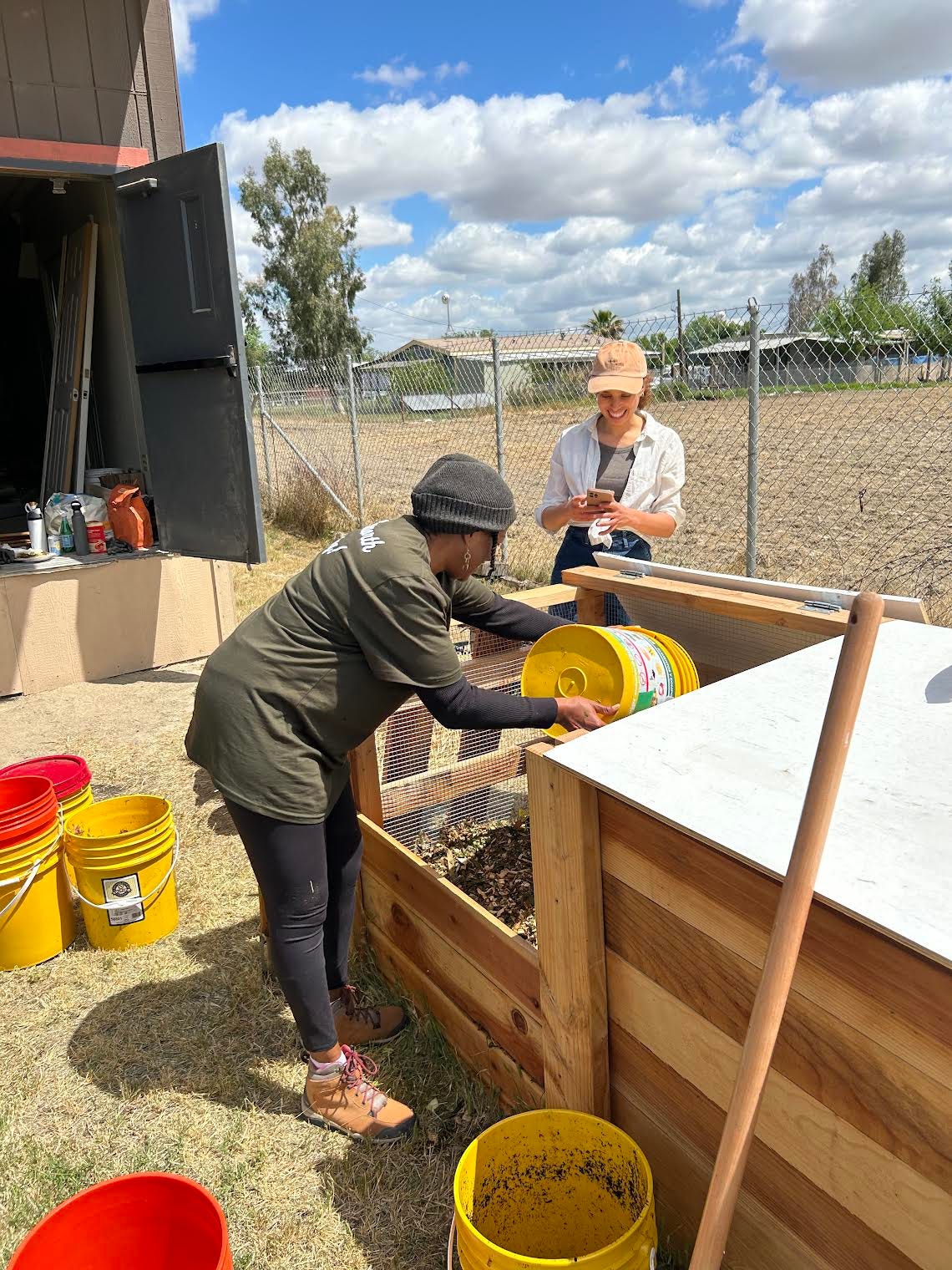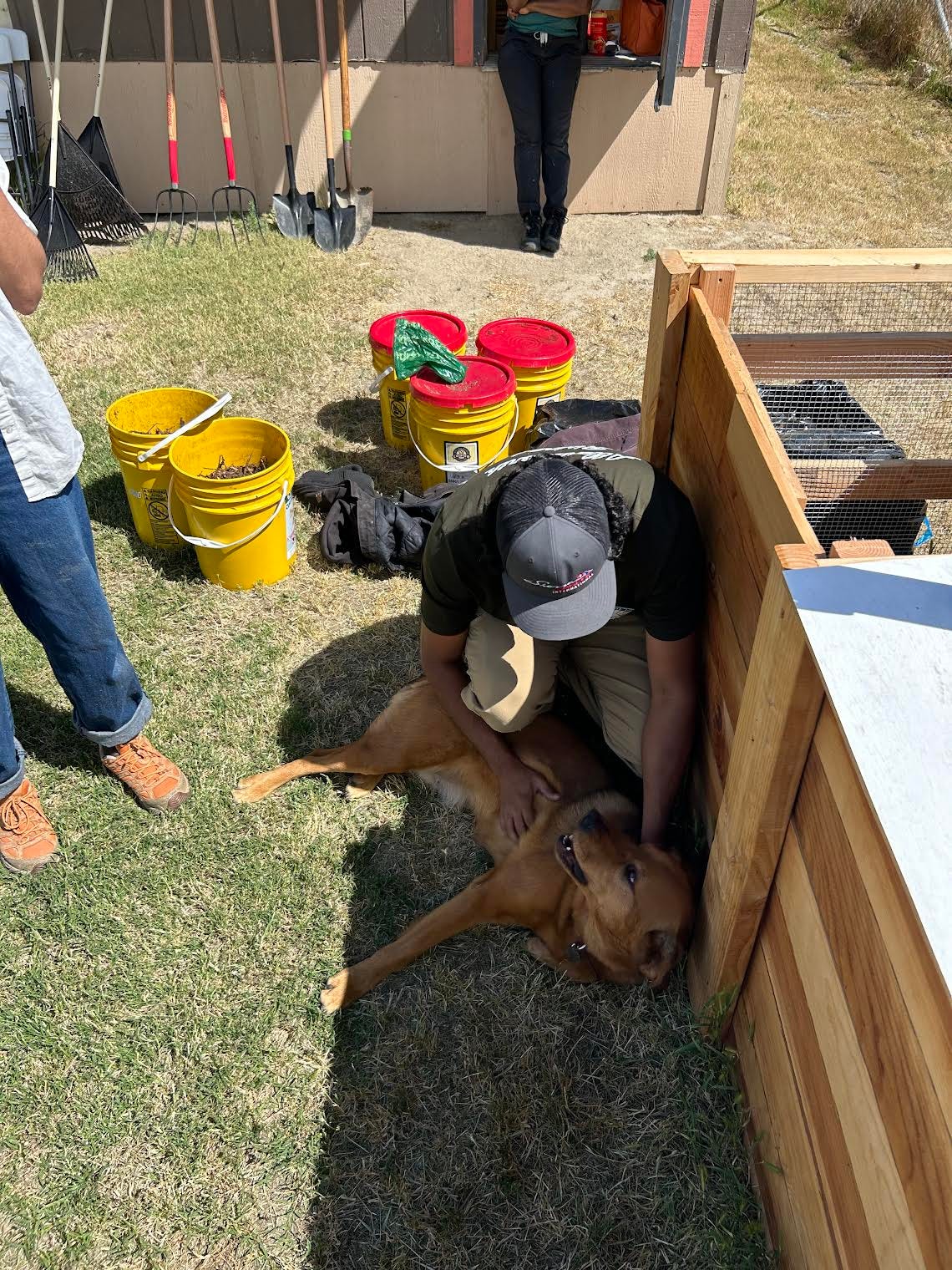On saving the soil in an old farming community
A short missive on community composting, soil restoration, and a very important project in Allensworth, CA
Hi everyone,
Quick admin updates:
I’m gearing up to submit the first draft of my book this week. I have to admit, there has not been a single thing in my life before this EVER that has been so completely all-consuming. I haven’t seen friends, gone out to parties, fed myself properly, or had a coherent conversation in months. I’m not complaining at all when I say this. I’m actually so happy to be working on something I love so much. It’s scary, exciting, wild, new, and wonderful. Now, I just hope it ends up being GOOD.
This is my fault for never bothering to figure out how Substack actually works, but I just noticed that my subscription plans were all messed up. Now, it’s fixed. Anybody can subscribe to The Rot for $30 a year. I’m also thinking of offering free merch for anybody who upgrades to paid, stay tuned. Lastly, I added a higher tier (h/t to Emily from Feed Me for this idea!) for those who can expense a subscription.
Onward:
Nina is a great friend of mine and an all-around lovely person. We first met when she reached out about sourcing food scraps for her chickens, but we stayed in touch over the years as fellow dirt-nerds and plant people. She hit me up to talk about her efforts at Allensworth (see picture, above) at the beginning of this year. This small, formerly-agricultural town wanted to bring farming back, but had discovered that—after years of water diversion from commercial growers in the surrounding valley— their soils were too salty to support crops. A huge restoration project was going to be needed and Nina was gearing up to spearhead an initiative that would test different, regenerative strategies for soil repair. She had already secured a 1-acre test plot and the permission of the town’s oversight committee.
One thing she was concerned about was how to give people a point of meaningful and ongoing engagement with the project, since soil restoration can take years of doing nothing and seeing no obvious results. Folks in town, she said, were a bit weary of waiting around. Action was needed. A few drinks and two hot dogs later, we had arrived at a solution: we were going to build a community compost station.
It would live at the mouth of the test plot. It would give people a reason to visit the project and a way to contribute to the effort. The compost, when finished, would be added to the test plot itself.
We both felt brilliant. (See: drinks.)
One month later, almost to the day, I was driving out to Allensworth to lead a community composting workshop. Nina had already utilized my blueprints to build a 3-bin system and the next step was educating folks in the community on its use. I was a little nervous and extremely tired, having left Los Angeles around 6 AM in the morning with nothing but some sunscreen, a cup of coffee, and my dog.
I needn’t have worried, though. The workshop was brilliant, in large part thanks to the enthusiastic participation of the people who attended. Nina and her mom were there. Somebody made tacos. People ate them while I began the demonstration and by the end they were composting the scraps that were left on their plates. Everybody asked great questions. One person’s Mom posed a leading query about “the bugs in her son’s pile” and then recorded my answer to video to send to him, which had everybody cracking up.
On the drive home, I reflected a little on the role that community compost hubs serve right now. As organics recycling mandates spread and compost goes curbside in more and more states, people are questioning the value of their local compost stations. Do we even still need them? I do understand the concern. We can’t process as much as the state facilities and it could be argued that people’s hands are inefficient compared to industrial compost machinery, but to me those are arguments in favor of our existence—not against. The whole point of a community compost is that it forces us operate at a very human scale. It keeps people in touch with each other and, importantly, the reality of their waste. Nothing will check a group of people on their consumptions habits faster and more thoroughly than spending a few hour shift at a community compost hub. Those lessons should be a permanent part of our social curriculum.
At the end of the day, I know that the new Allensworth Community Compost Hub is not going to produce enough compost to single-handedly restore the soils of the surrounding area. Not even close. But that doesn’t matter. Ideally, its use will offer the community something even more valuable, albeit less quantifiable: a deep and enduring sense of connection to each other and to the land they live on.
That’s what compost is best for.
Learn more about the effort to restore Allensworth here. If you are interested in donating to the the project directly, you can support the community here. If you would like to learn how to compost and/or hire me to host a workshop for your community, school, or institution - hit reply!
Love,
Cass








